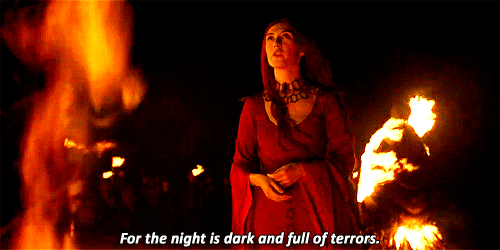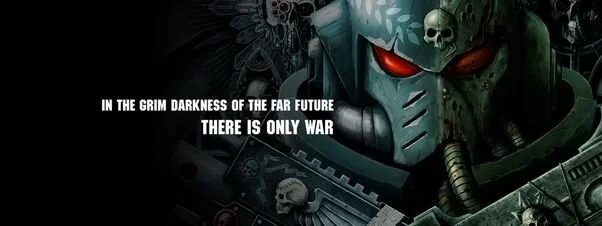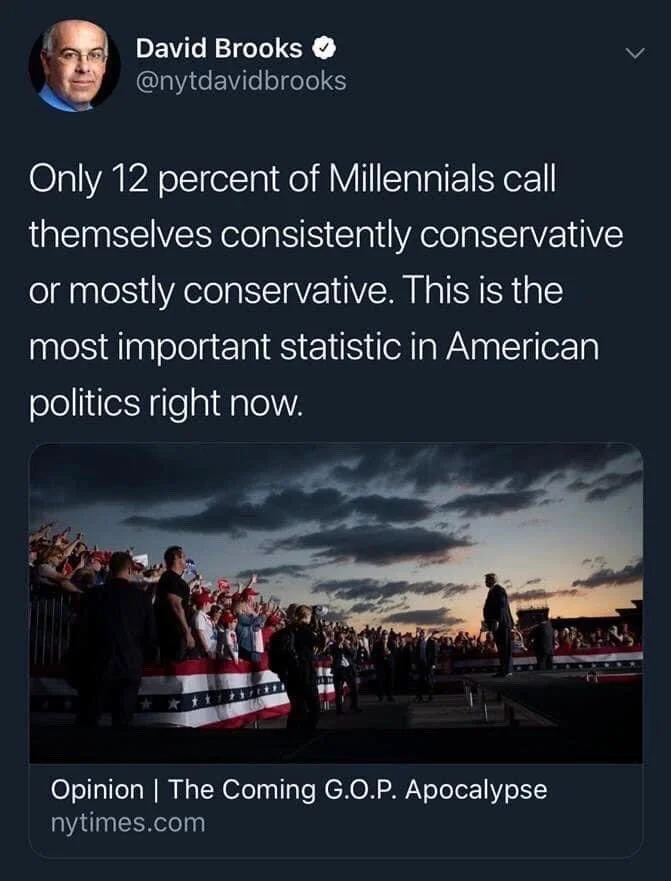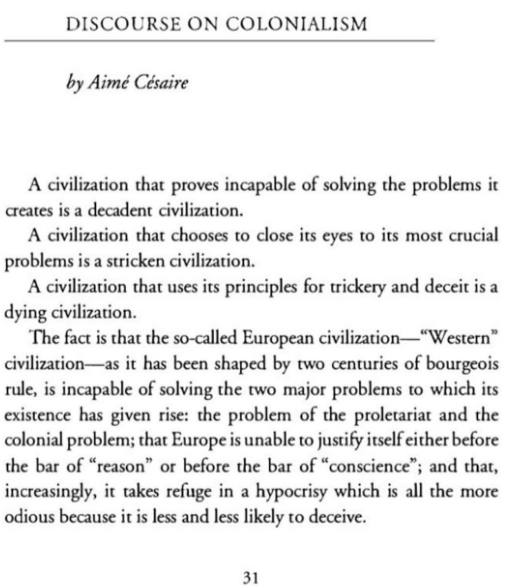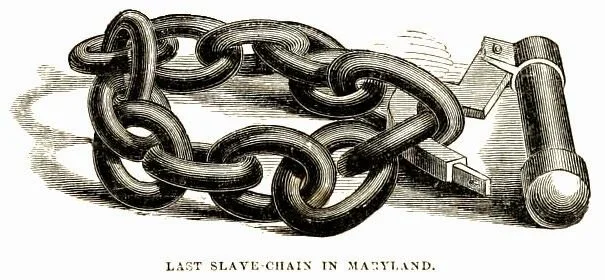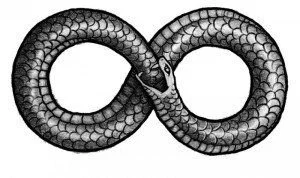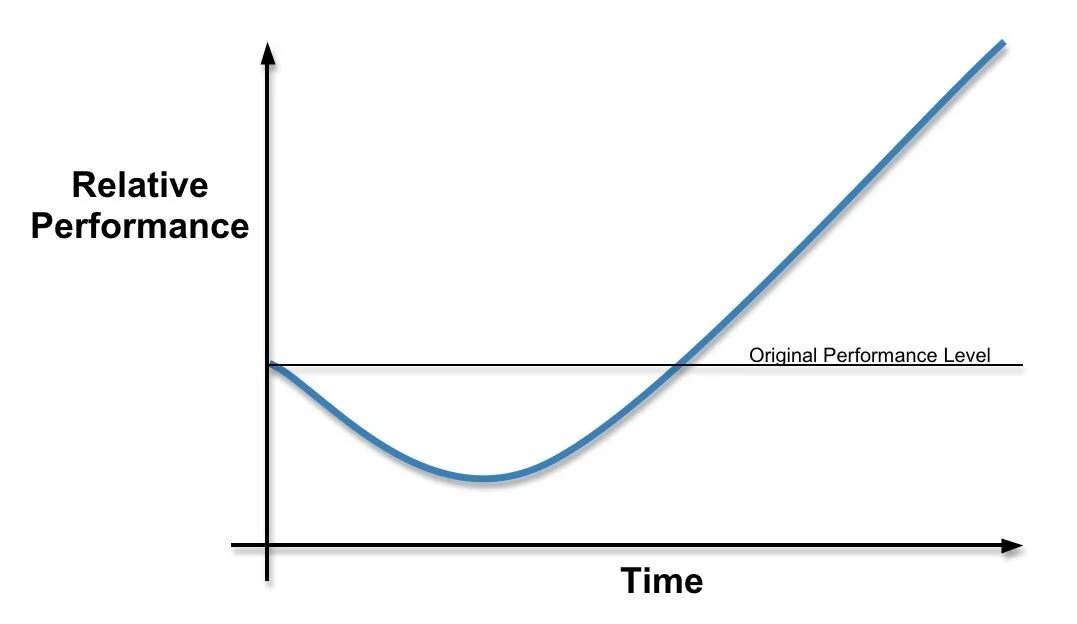Note: While the “essay prompt” for this arose from today’s political climate, not a single word or image in here refers in any way to current affairs. I promise. There’s a TL;DR at the bottom, but this isn’t the sort of thing that gets resolved via a bullet-point summary.
Some words associated with the Left-Wing & the Right-Wing:
Maybe you disagree with me on some of these words? I threw some sketchy ones in there. But most of us carry a mental model that instinctively places these words in the same zone.
Question: Is it possible to describe that shared mental model?
What makes an idea — even one completely disconnected from politics — “Left” or “Right”?
⁂
In the wake of 9/11, controversial Right-Wing public intellectual & occasional investor Peter Thiel wrote:
One may define a “liberal” as someone who knows nothing of the past and of this history of violence, and still holds to the Enlightenment view of the natural goodness of humanity. And one may define a “conservative” as someone who knows nothing of the future and of the global world that is destined to be, and therefore still believes that the nation-state or other institutions rooted in sacred violence can contain unlimited human violence.
This has stuck with me, mostly because I find it unsatisfactory. And yet…there’s a recognition here that “Right” or “Left” begins somewhere much deeper in the psyche than mere politics.
To get a satisfactory answer to my question is going to require a good-faith engagement with two opposing intellectual traditions. I’m pretty sure that’s impossible. There are no neutral observers. Nonetheless. I want an answer.
Consuming any popular media content today makes it clear that most of us, content creators and consumers alike, carry incredibly low resolution views of the opposing teams. I’m no exception, and I recognize how hard this makes things. But an answer requires genuine engagement and so:
One of the methods of party to acquire influence within particular districts is to misrepresent the opinions and aims of other districts. You cannot shield yourselves too much against the jealousies and heart burnings which spring from these misrepresentations; they tend to render alien to each other those who ought to be bound together by fraternal affection.
Grab a shield.
The Base Layer of Society Is Feudalism
I’m not sure I did justice to the terror of Feudalism in my 2019 magnum opus, The Full Stack of Society: Can You Make A Whole Society Wealthier?
I worry many readers read that sort of thing and think:
lol, yeah, it would totally suck to be a peasant in a Feudal world
But a Feudal world is recursive, all the way up. Every local land owner, every baron, every lord, every king — all of them live with the stress and anxiety of knowing that their own lands will be invaded. It is an inevitability.
Every source of Wealth will be subject to seizure if it cannot be defended.
Your children will not be spared — not from rape/slavery/burning in the event of a successful invasion, and not from the infinite anxiety that they will inherit when you pass your title down to them.
Your grandchildren will literally be crucified if they grow too soft.
When I was 17, I used to get so stressed out before a track meet that I couldn’t hold any food more complex than bread and energy bars. Alexander the Great had already put down his first armed revolt by that age, and he wasn’t even King yet.
His dad, King Philip of Macedon had conquered all of Greece — the region’s superpower — but the Thracians revolted as soon as he left town. Most teenagers today are ecstatic when their parents leave for a weekend. Can you imagine if rowdy locals showed up with spears to kill you and seize your family house every time…there’s no rest for the wicked ambitious founders.
When you imagine being a Feudal-era lord, do you imagine that you’ll win every conflict? How do you imagine your mental state will endure the constant anxiety, the life & death stakes of every decision made under extreme uncertainty?
Yes, if you’re a peasant, life is undoubtedly “nasty, brutish, and short.”
But if you’re “lucky” enough to be a holder of some title or other, pray that you inherit genes for psychopathy:
…impaired empathy and remorse, and bold, disinhibited, and egotistical traits…
You won’t live through the night otherwise. Nobody is spared the terrors of Feudalism.
The Right-Wing Genesis: Making Monsters Of Our Own
This sort of Feudalism is less a social-construction and more a “base state of existence”. It applies metaphorically to any entity that wants to exist, from the lowest animal to the human individual to the business to the religion right up to the nation state and beyond.
Every source of Value will be subject to seizure if it cannot be defended.
In the same essay, Thiel describes French philosopher René Girard’s idea of a founding moment:
“…murder is the secret origin of all religious and political institutions and is remembered and transfigured in the form of myth.”
This idea is linked inextricably to the discussion of Right- and Left-Wing worldviews:
The backdrop of Feudal competition I describe above is as much the source of the Girardian Founding Myth — the violent act of creation — as Girard’s philosophy concept of "mimetic desire". In a Feudal world of all-against-all might-makes-right existential terror, the problem is not a lack of would-be Founders.
The problem is simple resource scarcity.
To create something out of the nothingness of Feudal competition requires clearing a space to breathe. To relax. To think. To eat more than bread & powerbars. Space to spend some valuable resources on innovation and play and exploration. Absolute competition, with your life & your kids’ lives at stake, does not allow any space for creation.
Creation requires “slack” in a system which offers none.
And so every would-be Founder must first commit violence upon their own Feudal world, not on distant far-off enemies, but on those who are closest to them, those who might otherwise have a different vision, those who would compete for the same resources, the same team members, and point them in another direction.
The first victims are those who, a generation later, would’ve been included beneath the tent — and it is their similarities, not their differences, that put them in the crosshairs.
Competing visions for the same resources cannot resolve peacefully when the backdrop is Feudalism. Tomorrow’s ingroup is today’s outgroup.
Si vis pacem, para bellum
“And don’t we all want peace?” This is one of the primary mind-spaces that (actually thoughtful, reasonably intelligent, sometimes worth-at-least-understanding) Right-Wing intellectuals inhabit.
They look at the world — particularly at the history books — and see the darkness of man, a reflection of the darkness of nature, a reflection of the darkness of existence.
To overcome that darkness, history is quite clear that only a monster hero will suffice. The Right-Wing response to darkness is to construct or become something, anything, that can endure.[0]
To create an individual or an institution strong enough to survive & overcome these challenges is to create something with the potential to be more terrible than the darkness.
To spell it out: the Founding Moment of every meaningful institution will necessarily have a Founding Murder that accompanies it. The murder might be literal violence, it might be a more metaphorical sort of violence. These sorts of unpleasantries are often done by Monsters of our own, individuals we idolize but never raise up to Sainthood — always in the back of our mind we know that they were not Angels.
The immediate consequence of the violence is a momentary but cathartic peace, “slack”, from which the institution can create whatever it wishes.
The longer-term consequences of this stain on the soul will be felt much later…
The Future The Right-Eye Sees
Which brings us back to:
…And one may define a “conservative” as someone who knows nothing of the future and of the global world that is destined to be, and therefore still believes that the nation-state or other institutions rooted in sacred violence can contain unlimited human violence.
In contrast to this take, I contend that the “conservative” (by which I mean & prefer “Right-Wing”) is consumed by the future and the global world that is destined to be. Consumed and tormented:
Visions of the future only bring despair
Perhaps the “conservative” believes violence can be contained by something like a nation-state, perhaps they don’t. One is optimistic, the other pessimistic, and both are understandable takes — though the pessimistic one is, in my view, the more aesthetically correct Right-Wing position.
Scipio wept, even as he slaughtered 350,000+ civilians — genociding the most wealthy North African civilization of his era. Perhaps of any era. The tears weren’t for them. But for his own people and the inevitability of Rome’s demise. Every major institution has its own Scipio.
The Right-Wing worldview is one that looks to the future and sees his own death, his family’s death, his company’s death, his religion’s death, his nation’s death, his tribe’s death, the death of all mankind, and then the final death of all life — each death horrific or depressing, all of them nonconsensual.
And then he sets about trying to prevent it anyway. To delay it, at least. If there are injustices committed in the fight against Feudalism, if there must first be violence, well:
“Mankind must suffer so that mankind can survive.”
Thiel quotes John Locke, founding father of modern Western liberalism:
“the first and strongest desire God planted in men” is not love of God or others, but a healthy concern with one’s self-preservation
And yet both Thiel & Locke — and all of us who are honest with ourselves — recognize that self-preservation is impossible. Perhaps the link between Right-Wing views and religion, with its eternal afterlife, is totally unrelated to this fact? I’d be surprised.
That there will be personal, familial, tribal, national, and species death as an inevitability is hard to argue with. A highschool understanding of biology explains the first two. A highschool understanding of history explains the third. And a highschool understanding of physics explains the last one. Energy must be conserved (E0 = E1), and Entropy must ~increase (S1 >= S0).
Things will fall apart.
Science fiction author Isaac Asimov might have identified as Left-Wing politically, but he quite beautifully lays out the inevitable loss that will be suffered by “Team Life” in his famous short story, The Last Question. You should read it. If you have an alternate ending to propose, don’t DM me about it, go tell the Nobel committee and they’ll give you a million bucks.
Consider how a (depressing) view of the future such as this intersects with various topics that the Right-Wing differs from the Left-Wing on:
“Sustainability” becomes meaningless by itself to the Right-Wing worldview — since even Life itself is not sustainable. It’s not that the concept is useless or uninteresting to them, it’s just viewed as a sort of non-sequitur without being attached to a broader discussion about tradeoffs and potentials.
Always and in every domain, the Right-Wing view will challenge every claim that the state of reality can be improved-by-fiat with questions about tradeoffs. No improvement is viewed as existing in a vacuum. Every improvement is viewed with the potential to destabilize the existing institution. (This is exhausting and infuriating to those with genuinely good ideas about improving reality. It’s also exhausting and infuriating for those with terrible ideas.)
All that matters to the Right-Wing worldview is the needle of progress moving forward, and the time-til-death being pushed backwards.
Of course, you can pitch them on the collapse of global ecosystems being a pretty sure-bet to cause “time-til-death” to accelerate. But you’ve got to convince them that the medicine isn’t worse than the disease. Elon Musk is perhaps the only “serious” person, in so far as Elon can be said to be serious, to discuss the near-certainty of another “Dark Age” in the future and how concerned he is with pushing the envelope of technology forward while we can. That is, ultimately, the tradeoff that today’s sustainability discussion often runs into.
I think Elon’s popularity “across the aisle” is not unrelated to the positive & circular framing with which he describes problems — and then provides solutions to those problems. Sustainability to enable a specific progress (see: electric cars). Multi-planetary life to enable a new level of sustainability (see: rockets).
Over the next 1.1 billion years, solar luminosity will increase by 10%…Earth's increasing surface temperature will accelerate the inorganic carbon cycle, reducing CO2 concentration to levels lethally low for plants in approximately 100–900 million years. The lack of vegetation will result in the loss of oxygen in the atmosphere, making animal life impossible.
Failure is inevitable.
Life on Earth is more than halfway done. At worst, data suggests we could be 85% done — and that’s assuming an asteroid doesn’t just yolo us all into nonexistence anyway by introduction of 1/2 mv^2.
In 1992 we recorded video of an asteroid that broke apart and impacted Jupiter (bottom-left). Jupiter is ~11x larger than Earth — making that fireball about the same size as our home planet. Fun fact? The rock that killed the dinosaurs was about 3x larger than this rock, so these sorts of things really do happen
Under this Right-Wing framework, all political questions, i.e. questions about the proper allocation of resources, resolve to the tension between the needle of progress and the clock of death.
Does it help move the former? Does it delay the latter? Almost every answer to one of those two questions has an opposite effect on the other question. Progress requires the consumption of energy, the destruction of finite resources, the expansion of population, and the growing of institutional borders to their breaking point.[1] Progress is built out of J-curves, and the beginning of every J-curve is pain, and the inflection point is buried in uncertainty.
Thus the tension: Progress hastens Death at first, but attempts to delay Death also delay Progress.
While these examples are all political in nature, I hope it’s clear how this model extends far beyond the political sphere.
If you’ve ever tried to push for change within an organization, you’ll have experienced this same process working to stifle your every positive suggestion, wasting energy on arbitrarily-deep analyses for people whose minds were already made up, instead of doing actually-meaningful things. Those people exist to raise the activation energy required to change the organization’s course. “Delaying Death…”
And if you’ve ever watched a naïve new hire join your organization, radically disrupt things, have a negative impact due to failing to fully comprehend the complex structure they rearranged, and then get promoted or hired away from the disaster they created, you’ll have felt what it’s like to be on the Right-Wing side of the table. “…hastens Death”
The Breakdown of Order: Right-Wing Tyranny or Abdication
If the world outside were to spontaneously become a Garden of Eden, ordered and harmonious and infinite — and if all other humans were to become satisfied and sated and harmless — the natural and social reasons for the Right-Wing worldview would surely….
Disappear.
Right-Wing perspectives are therefore always reacting to “external” threats, and understanding (the thoughtful & intelligent ones of) them requires a proper appreciation for the perceived horror of whatever ~Feudal future they are imagining.
Of course, all worldviews are mostly held by unthoughtful folks, so the mode Right-Wing view that you encounter will just be an unintelligible internally-inconsistent primal expression of existential fear. It can be hard to judge, at first, where someone else exists on this spectrum, and how seriously to listen to their perspective, but I find their outwardly-expressed emotional response to be a decent first indicator.
Fear? Anger? Rage? Disdain? Zzzzzzzzzzzzzz, press skip on that and save your neurons:
This coffee mug is more complex than that noise
Sorrow? Commitment? Resignation? Bitterness, not towards others, but towards the cruelty of the natural order? Maybe worth at least brief consideration.
“I come in peace. I didn’t bring artillery. But I’m pleading with you, with tears in my eyes…”
Once you understand what’s driving it, it’s easy to see how the Right-Wing worldview can totally breakdown. Sorrowful commitment to the unpleasant-but-necessary [Task] easily becomes a thin veneer — a pretty lie you tell yourself to hide the truth: that you enjoy the struggle, the competition, the violence, and pursue it for its own sake.
When the task has been completed and the darkness banished — however briefly — does the individual relent? Do they take their space to breathe and relax and create in the clearing they made?
And therein lies the problem.
The “relatively-virtuous” Right-Wing predilection is to fight with every weapon at your disposal, even the nasty ones, in order to create, or at least to allow for others to create. The “Founding Murder” mythology puts “slack” in the system, and out of that slack comes creation.
Thus every Right-Wing individual who is able to resist absolute corruption when given power will tend to self-remove from influence/office/power once their goal is achieved:
President Washington’s farewell address
Which leaves the rest of us dealing with…all the other ones.
The only alternative is to find some way for the capable and “relatively-virtuous” Right-Wing figure to remain in the fight without becoming consumed by it — a herculean task of discipline and commitment for any individual.
It is also necessary for the population at large — we subjects — to willingly believe whatever “fiction” allows us to accept the presence of a figure who, by all accounts, appears to have already won “the game”. Otherwise our tendency to revolt and claim what’s ours will ruin the whole system.
The need for these sorts of “fictions” explains Right-Wing intellectuals’ interest in Strauss:
“Every decent modern reader is bound to be shocked by the mere suggestion that a great man might have deliberately deceived a large majority of his readers,” Strauss wrote. “And yet [the ancient philosophers] were perhaps more sincere than we when they called ‘lying nobly’ what we would call ‘considering one’s social responsibilities.’”
…
What is the “social responsibility” of the intellectual?
Narrative fiction has a unifying power, while total & radical transparency tends to destabilize. Ultimately all leaders are human, and therefore fallible, and therefore can be made to look foolish or mistaken or uncertain or immoral. Nobody, no institution, could ever stand up to the infinite magnifying glass and maintain the mantle of leadership.
Right-Wing worldviews solve this dilemma by formalizing the creation of “cultural institutions” — from monarchies to religions — as a way to bring the “fiction” into reality.
These cultural institutions, fictional though they may be, serve a dual purpose:
i) they solidify the relationship between Founder and people. Abdication becomes a thing to be ashamed of. Duty overrides the natural desire to “be free of” the game
ii) they provide a framework to confer authority on Founder-type individuals that comes pre-baked with respect & obedience by “the people”. The institutions contain both the justification for the concentration of power, and the mechanism to transfer that power without disrupting the stability of the system.[2]
Unfortunately for the Right-Wing, most people will not believe a fiction once they know it to be false, no matter how “good for them” you shout that it is…
…and the relentless liberalizing march of modernity has democratized knowledge enough that ~everyone now knows our shared “fictions” to be manufactured falsehoods.
Encountering a true-believer today evokes a sense of bemusement:
"Could it be possible! This old saint has not heard in his forest that God is dead!"
— Nietzsche
Thus the Right-Wing dilemma — heroes who become tyrants or else abdicate their responsibility, buried beneath the red-tape of cultural institutions none of us believe in.
Right-Wing Narrative Failure In The Narrative Age
The importance of “Narrative” in today’s world is hard to understate. Anyone who writes anything that touches modern Culture tends to note it. People need a “why” to understand and act upon the world.
And anyone on the Right-Wing who leaves their bubble and looks out the window immediately notices that Right-Wing perspectives have taken L after L in terms of cultural relevance.[3] Of course, most mainstream Right-Wing prognosticators never look outside their window, which makes watching them claim cultural victory rather amusing.
But it occurs to me that this fundamentally pessimistic view of the future is one of the primary reasons Right-Wing worldviews fail again and again to create compelling Narratives.
What is there to rally around? Grim determination? “The night is dark and full of terrors”? That’s your pitch? That won’t appeal to anyone who lives above the Feudal cut off line. Anyone sufficiently removed from birth-to-grave Feudal anxiety/terror is going to scoff and laugh at your silly fears.
Today that basically includes the entire middle & upper-middle classes.
Always listen to fear. Never be ruled by it. Fear is like a cowardly friend. His advice is not always wrong, but, given the chance, he will drag you down into the pit he dwells in.
Nobody wants to be dragged down into that pit with you.
Fringe Right-Wing intellectuals have been pointing out that their tribe is failing to deliver a compelling Narrative since…forever. It’s practically a rite of passage. Again and again they deliver well-researched deeply-analytical tomes about their tribe’s failure to compel.
But then, having completed their analysis, they tend to fade away. Telling stories is hard. Telling stories people like is harder. Telling stories people believe in enough to act on?
Well that gets pretty hard when the future you’re selling is…an unwinnable battle between progress and death.
Right-Wing narratives fail in other ways, too — and by “fail” I mean they do not have a compelling explanation for an unmistakable illness that plagues society, nor a plan to solve it.
I mentioned “sustainability” earlier as a (somewhat) tame example of how Right-Wing worldviews lead to meaningful differences in policy prescriptions from those on the Left-Wing.
A more severe example would be the entire concept of “Justice”. Of course, “justice” with a lowercase-J is a sense & emotion familiar to all humans across the political spectrum, it’s not an unfamiliar feeling to those on the Right. It is so core to the human experience that we all expect it to be built into any and all human-created systems.
When you listen to Right-Wing narratives appeal to “justice”, they’ll do so with reference to a higher-power, a higher-purpose, some sense of objective “right & wrong”.
But as pretty as they might be, the Right-Wing worldview knows that those ideas are not present in the base state of reality. They are as beautiful, and as concrete, as dreams — and so they are not a meaningful measuring stick for any aspect of present-reality.
When a human-built system fails to live up to some standard of “justice”, defined however you please, the Right-Wing worldview’s default response is to shrug shoulders and say: “well, at least it’s better than the absolute hell of Feudal terror for all.”[4]
Within those pretty dreams there is no conception at all of something like “economic justice”:
(I’m picking an example here that is likely to make the largest number of Right-Wing-leaning people recoil in disgust, hopefully triggering an admission of the disconnect between their views of ‘Justice’ and others’)
The idea of linking “justice” to [fairness] or [equality] makes as much sense as linking it to [chromatography] or [geology] under the Right-Wing worldview. An act is either “right” or “wrong”, binary — because the Right-Wing worldview begins with a reaction to an external existential horror. An act moves you or your society away from the terror of chaotic Feudalism, or towards it.
“Of course there is injustice & inequality! Have you looked outside? The base state of reality is injustice — chaotic Feudal terror that results in a cruel and barbaric death — and the monsters we must create to overcome that are to be judged according to their success in overcoming the default!”
Example of a well-researched book by a Right-Wing intellectual covering a Right-Wing worldview of injustices
True as it might be within their worldview, this reads as either apathy or blindness towards what [those-outside-their-tent] view as genuine injustices.
Apathy & blindness do not tend to win you followers.
Injustice Is Fundamentally Solvable: And Therefore Intolerable
The nature of text as a medium means I have to structure this essay linearly — Right-Wing or Left-Wing must come first, I can’t just layer the sentences on top of each other.
By putting one first, I’m 100% going to change how the second one gets read. And I had to write one first, which undoubtedly has shaped & clarified my own thoughts in a particular direction.
Allowing for the possibility that my structuring of this essay has shaped my views, I nonetheless believe that this ordering is correct.
I closed the section above on Right-Wing Narrative failure by talking about the idea of “Justice”. I think this is perhaps the primary mind-space that (actually thoughtful, reasonably intelligent, sometimes worth-at-least-understanding) Left-Wing intellectuals inhabit.
Lady Justice, the Roman Goddess — blindfold first added in the 1500s by a Swiss sculptor, perhaps not unrelated to the timing of the subsequent Enlightenment
I’m not sure how to do justice to the soul-crushing despair brought on by experiencing sustained Injustice from a human-created system. I know many who hold a Left-Wing worldview don’t need it spelled out for them — but it is perhaps the most important thing to communicate.
Just as “Feudalism” as a concept is merely academic, meaningless, if you can’t appreciate the abject existential terror that lies forever on your borders, so too is “Injustice” an inconsequential word to describe an alien phenomenon without the gut-deep understanding of what it does to a person’s psyche.
A world of “Injustice” is a world that has decided, collectively, that you will not be allowed to rise. That you do not matter, while others do. You may not build Wealth. You will experience harsher legal penalties. At every level you will be held back, either explicitly or implicitly, preferably both. When you are victimized you will not have any recourse, and if the spark of agency has not yet been stamped out and you seek “Justice” of your own, you will be deleted.
Stack enough of those experiences up and even the most strong-willed individuals will start to give up. To give in. To consent. Why bother resisting something so much bigger than any one person?
Everyone has experienced suffering in one way or another, which is usually helpful for building empathy & bridging divides. But in the case of Injustice experienced by someone else, we have a tendency to see only the individual act of Injustice and then reason about the response we would’ve had to experiencing that same act.
This fails because most humans are strong enough to put up with anything…so long as there’s a light at the end of the tunnel. Put a reasonable time-limit on the Injustice and most of us can imagine soldiering on for years. Leave it uncapped and we’re liable to crack in a handful of days.
The crack that forms is in your will. To action. To agency. Sometimes, to live.
If the main emotion evoked by a Feudal landscape is existential terror, the emotion evoked by a birth-to-grave world of Injustice is existential apathy.
Some might disagree with that, and I’d agree with them that the initial response is usually rage and indignation. Righteous fury is a baseline response to Injustice. But rage burns out quick. What’s left when the rage has run its course and the heavy chains of Injustice still hold you down?
“Why bother?”
The primary pain point for the Left-Wing worldview is not that all this Injustice is miserable — it’s that it is optional.
The institution, no matter what terror it was created to fend off, was made by humans, for humans. Consciously or not, that makes the Injustice a human creation too.
Injustice is just a pattern of continuing social treatment by…everyone else who touches the institution in any way. Everyone is complicit to some degree. Even the victim, if the conditions have been well-established.
"Examining the mechanism, we must admit it was a safe thing to trust in securing merchandise such as Margaret Toogood.” — Margaret Toogood was the last slave in Maryland. This sentence was written by the wife of the man who freed her. Mere merchandise.
Reality Has A Well-Known Left-Wing Bias: Surviving
If you consider the great Western Left-Wing battles of the last 805 years, and if you look at the arguments opposing them, you can almost always find someone arguing:
“The existence of [institutional Injustice] is merely a reflection of the natural order-”
From the Divine Right of Kings to [insert hot-button issue of today], it’s common for the debate to get bogged down in whether or not [some instance of the Injustice] can be found in the base state of nature…
…which, as I hope I have already established, is a Feudal hellscape for every living creature.
Of course there will be Injustices. That they exist [out there], beyond the pale of civilization, is immaterial to the Left-Wing worldview. The question is: Why did you bring them inside?
“Because it was deemed necessary at the time to build an entity tightly-knit enough to overcome the Feudalism that was all around us-”
I’m not saying this response is true in all cases, but let’s pretend that it’s true for some. Certainly the Divine Right of Kings seems like an understandable solution to the question of leadership during The Dark Ages: “Who made you king?”
“God did. And by way of proof, he helped me slay the last 37 guys who claimed otherwise. Are you going to join the list or can we start making society?”
“Amen.”
But what happens when you finish “making society?” Why would we continue to consent to such an arbitrary and barbaric leadership selection process?
Even if, hypothetically, the Left-Wing view grants that the Injustice was perhaps necessary at one point in the past, it cannot accept that it is necessary in the present. There’s no need to concentrate the power anymore. We won. Where “we” = [both those on the Right and the Left] = our shared institution.
Now, let us finally take the time to right the wrongs being done in our name!
And thus reality’s natural Left-Wing bias: because we have become successful, we may now increase Justice.
The exception to the revised rule is death: every institution that actually overcomes the struggle of its Founding conditions becomes Left-Wing eventually — the rest die
The Past The Left-Eye Sees
One may define a “liberal” as someone who knows nothing of the past and of this history of violence, and still holds to the Enlightenment view of the natural goodness of humanity.
As with his take on the “conservative”, I think Peter Thiel misses the mark here. I contend that the “liberal” (by which I mean & prefer “Left-Wing”) is consumed by knowledge of the past, as well as the present-day Injustices that unquestionably stem from past Injustices. Consumed and tormented:
Past failures are a never-ending source of unsolvable agony
Perhaps the “liberal” believes in the natural goodness of humanity, perhaps they don’t. If sustained human-created Injustice has worn them down, apathy and misanthropy are understandable reactionary positions, though the optimistic view expressed here by Thiel is, to me, the more aesthetically correct position.
The Left-Wing view is, after all, one that fundamentally believes Justice is achievable and attainable — nothing if not optimistic.
Which brings us to the Girardian Founding Myth:
“…murder is the secret origin of all religious and political institutions and is remembered and transfigured in the form of myth.”
Once you see this, you cannot unsee it.
There is not a single meaningful institution around today with a clean sheet. Both Republicans and Democrats who voted No on the celebrated Civil Rights Act of 1964 were still being elected to office in the 1990s. The most valuable companies in America today are also known for decimating small regional business, consumer privacy violations, epic anti-trust violations, and supporting the CCP before it was cool — and that’s just the fluffy California tech companies. Wait til you learn about oil & pharma & the wars we’ve fought & our various government agencies & university discrimination and-
The Left-Wing worldview is well-tuned to the traumas of Injustice, and when it looks at today’s most successful institutions it sees an undeniable litany of past abuses at every level — abuses that nobody today seems interested in rectifying.
From his own personal successes, which in our often zero-sum world are perceived to come at the expense of others (Harvard admits only so many kids each year), to his family’s success, to his company’s success, his nation’s success, his tribe’s success, and eventually even the success of all mankind — always and forever there is a cost that someone else has paid. Sometimes you have to look back hundreds of years to find who paid that cost, sometimes mere months.
Under this framework, all Left-Wing policy issues tend to resolve to a simple question: are we not, collectively, now at a point where we can afford to rectify a specific human-created Injustice?
The Breakdown of Justice: The Limits of Atonement
If the real world were magically rearranged into a perfect utopia of Justice for all, as perceived & agreed upon by every member of society, the natural and social reasons for the Left-Wing worldview would perhaps also…
Disappear.
Left-Wing perspectives can therefore be understood as reacting to their society’s “internal” conditions, and understanding (the thoughtful & intelligent ones of) them requires a serious appreciation for the perceived soul-crushing despair of whatever ~Injustice they are imagining.
Once you understand what’s driving it, and contrast that drive with the undeniable bodies buried in the past of every meaningful institution, it’s easy to see how the Left-Wing worldview can breakdown.
The optimistic desire to reform a minor Injustice out of society can quickly become a grim helter skelter that spirals you down faster and faster — as you begin by trying to reform a specific & seemingly achievable surface-level Injustice, only to realize that you must go deeper to address its root causes…and deeper…and eventually you hit the bottom and discover that the entire institution itself was founded on an Injustice: “the founding murder” is uncovered.
Pictured: society (also I grew up near this cathedral and this picture is a hilarious metaphor)
What then?
The Left-Wing worldview “breaks down” when it slams into the stone slabs at the bottom of this helter skelter and decides to burn the whole thing down, cathedral walls and all, for being an unreformable rotten mess.
Assuming our hypothetical Left-Wing individual has not been reduced to inaction as a result of years of Injustice leaving them in a state of emotional apathy, and assuming they actually try to tear down the corrupt institution, and assuming they actually succeed — what then?
Will there be more Justice, in the present and the future, for those alive and still suffering?
The base state of existence is still Feudal terror. Tearing down the Unjust institution does not change that fact, it reveals it. And into that vacuum will swarm all kinds of unsavory characters, all champing at the bit for their chance to create their vision of an idealized institution.
It is not an accident or a coincidence that this is the exact scenario that births Right-Wing figures into the pages of history.
Any Left-Wing worldview that is disgusted by the presence of rotten institutions and so begins “first, we must tear down-” will necessarily create the conditions for a Right-Wing-dominated institution to rise from the ashes, one that is almost certainly more-Right-Wing than the institution which was torn down, less forgiving, less allowing of individual liberties, less tolerant of the sorts of disagreements that allow people to say things like: “first, we must tear down-”
Horseshoe Theory is a static representation of this symbiosis, “Ouroboros Theory” is how it plays out across time
If a momentously heroic individual or movement — and they do exist — is able to successfully remedy a societal Injustice, however small, they will have achieved the impossible. A miracle. The force of that moment tends to stop their slide, as if a balcony opened on the helter skelter, just for them & their followers. It provides a temporary catharsis, draining a little action-potential out of the institution.
But, eventually, another Injustice will be brought to light and the march of progress will demand action, and the institution will move left or it will perish.
If You’re Not Growing, You’re Dying: Right Meets Left
The Right-Wing got an entire section on their pessimistic worldview’s core “Narrative failure” — I don’t think it necessary to devote an equal section to the obvious Narrative appeal of an optimistic movement that i) identifies a clear Injustice ii) believes it is fixable iii) demands action & iv) believes every individual who helps, matters.
In the world of storytelling, in the world of Narrative, there’s absolutely no contest. It’s not a fair fight. It’s not even the same sport. One team is shooting imaginary nerf guns, the other is building rockets.
Pictured: the Narrative war between Right & Left
But I want to close on an optimistic note of my own, and on how I perceive the necessary symbiosis of Right- & Left-wing worldviews:
…eventually, another Injustice will be brought to light and the march of progress will demand action, and the institution will move left or it will perish.
To be clear, when I wrote this, the “or it will perish” part is not necessarily a threat or even something done by Left-wing individuals. It is just the flipside of the observation that any organization sooner or later becomes left-wing. “Perishing” is as much a failure of the Right-Wing for building something so damn weak that it could not survive a move towards Justice.
Part of the value of the Right-wing is to create and maintain institutions strong enough to survive both the initial conditions and the ever-greater asks that will be made of the institution in the future. That is no easy task.
At the highest level of abstraction, it means spending energy to grow. At the middle-tiers of abstraction, it means forcing a new entity into existence and imbuing it with a rigid sense of order, such that it can continue to operate even without the Founder. At the lower levels of abstraction, it means revenue, role-based organizations, hierarchy, a plan for the next 3 quarters, and someone assigned the critical responsibility of janitorial work.
Part of the value of the Left-wing is also to provide growth and strengthen existing institutions! A sense of Justice, knowledge of good and evil, is as core to the human experience as existential fear.[5] Humans will not tolerate sustained Injustice forever, and an institution which is not willing to move closer towards Justice will become unstable as a result. Solving those sorts of problems — “solving genuine problems other people have” — is tremendously valuable to the meta-institution, and is something that the Left-wing worldview tends to do best.
At the highest level of abstraction, that means slowing things that increase entropy. At the middle-tiers of abstraction, that means identification of- & creative solutions to- emergent problems of complex systems. At the lower levels of abstraction, it means new product development, competence-based organizations, complex & fluid social graphs, long-term growth without needing a 172 page slide deck, and someone looking out for the people at the bottom of the current system.
In both of these cases, the Energy case and the Entropy case, there is a J-curve in play. To generate more Energy in the future, you’ve got to spend a good chunk today — enough that it’s not always clear you can pull through the deficit. And to slow the inevitable growth of Entropy, you’ve often got to increase the disorder a little at first — and that shit gets scary fast, for everyone at all levels of the existing hierarchy.
Pictured: progress. The part below the x-axis is all we ever see of our opponents.
“Your Framework Is Dumb And Incomplete, And So Are You”
Obviously! It’s just a framework. Just one lens to help me understand how it is that we all have a shared model of meaning behind what it means to be “Right-” or “Left-” wing, such that we can all correctly categorize complex phenomena as “Right” or “Left”.
I have some sufficiently high-level answers now, and they satisfy me. Energy vs. Entropy. Existential Terror vs. Existential Apathy. Feudalism vs. Injustice.
An alternative title for this section is: “You’re wrong because I’ve never encountered a [smart/wise] [Right/Left]-Wing person!”
Which might be true! Hey, you are what you eat read, and your diet is none of my business, and social bubbles are more powerful than god:
I think this is a very real critique though: the average Right/Left-wing individual that you encounter is obviously going to be near the center of the bell-curve and not a shining intellect worthy of analysis. The average Right/Left-wing individual that your own social bubble shows you as an example of your outgroup will tend to be comically worse than that.
But what I’ve tried to explore here is the far-right end of the bell-curve — the pinnacle of both worldviews. I don’t see much value in spending time on anything lesser, bad diets and whatnot.
What’s nice about this framework is it has some explanatory value for the rest of the bell curve too.
For example: the overwhelming majority of Right-wing-identifying-persons are in no way, shape, or form capable of even appreciating the creation of enduring institutions, let alone actually undertaking the task themselves. Few people are. But these people, these relative mortals at the center of the bell-curve, still possess the same underlying concern (see: awareness of external existential terror), and so they tend to at least work to maintain existing institutions. Thus: traditionalism, seniority, hierarchy, respect for existing structures, resistance to change, process refinement, efficiency increases, cultural homogeneity, aversion to potential existential-risks, etc. etc. — broadly described: “conservative”
“If you can’t create something worthy, at least don’t make things worse”
And of course, there is the far-left of the Right-wing bell curve, where the individuals in question have no conception of their own drives, likely don’t actually have worldviews of their own and merely seek to fit in with broader tribe around them, mostly because it gives them an outgroup to hate and they already began with the hate, it just needed a ~justifiable target. Painting any specific outgroup as an existential threat is the fastest way to justify & channel pre-existing hatred.
I leave the similar example of describing the Left-wing bell curve as an exercise for the reader. Hopefully you’ll agree with me on the reasons why the word “liberal” is broadly fitting for the center chunk.
⁂
“Okay so this is sort of neat, and maybe I can see it, but it’s far too simplistic. Consider a Startup! From one perspective, they are plucky underdogs, they tend to have flatter hierarchies, and they are the most efficient machines at solving other people’s problems! Isn’t that all Left-Wing-coded?
But on the flipside, they are a Founding Moment of their own. Name any famous startup and we can all say who/what they “killed” with their Founding Murder. The Startup CEO is an archetypal Founder figure, and has far more explicit control than any big-company-CEO. So are they also Right-Wing?
And the answer is, of course, yes. To both. Because anything meaningful in real-life is a synthesis of both Right- and Left-. If something can be reduced to purely Right-Wing or purely Left-Wing it is either irrelevant or dying. Live Players have to deal with the twin problems of Energy and Entropy.
If you can look at an organization honestly and truthfully and not perceive any hint of both Right- and Left-Wing orientations in it, you’re probably looking at a zombie.
I submit that this is not unrelated to certain historical figures’ distaste for “political party” and “faction”.
⁂
Lastly, I’ve also studiously avoided any discussion of the y-axis on this popular chart:
Why? I don’t know exactly, and wrestling with that would take another 5,000 words that I don’t quite feel like writing. I stared at this chart for 5mins and asked myself “why don’t you care about the y-axis today, when it used to seem so obviously important to you? When you used to identify primarily along that axis and ignore everyone talking about Right/Left?” and the immediate answer I got from my gut was:
“There are no Libertarians in the Jungle”
A familiar play on the relationship between atheists and foxholes. I.e. the y-axis is reflective of how dire any individual believes their external surroundings to be.
Every ideology can go authoritarian, even the Paperclip Maximizers — and they will go authoritarian if the circumstances are seen as severe enough.
I’m not saying the y-axis is all just a LARP — obviously there are seriously harmful Authoritarian examples on every page of literally every history book, and I’m not exactly breaking boundaries by admitting to a Libertarian streak in my youth — I’m just saying this axis is much more a result of your surroundings than any internal character disposition.
That study I linked to says a lot. The pages of history likewise.
Feel free to disagree with me there, I’d be interested to hear other perspectives & hope my Lib and Auth readers don’t feel completely disgusted by my glib take — don’t expect a follow-up essay though. I hate writing about politics this directly and probably won’t have the nerve or the inclination to do it again.
Enjoy the election.
TL;DR
Ouroboros Theory:
Right-Wing organizations are created to combat a perceived existential threat. The more they succeed, the farther away they travel from their founding circumstances, the more their mission drifts towards also solving Injustice.
Left-Wing organizations adopt solving a specific Injustice as their primary purpose. The more they succeed, the clearer it becomes that there is a Founding-Murder at the root of their most treasured institutions. Seeking to undo the sins of the past can lead to efforts to tear down these treasured institutions, exposing “perceived existential threats” to everyone else, creating the necessary conditions for a Right-Wing organization to step-in.
Society exists in the balance of these two worldviews
Alternatively:
“Everything to my left is morally just, but impractical, while everything to my right is immoral and unnecessary”
Now define “just”, “impractical”, “immoral”, and “unnecessary” and you’ve summarized this whole essay.
“Conservative” and “Liberal” are both helpful and meaningful labels to describe opposing worldviews, but both of them belong at the center of their respective intellectual bell-curves, both suitable for people of average ability and modest ambitions
The intellectual pinnacle of both worldviews provide necessary and complementary toolkits to help create & maintain all our shared institutions in the unwinnable fight against the First & Second Laws of Thermodynamics.
Great leaders integrate both.
Energy & Entropy will win regardless, in the endgame.
Til then, we’ll do our best.
Notes
[0] A polarizing internet figure like Jordan Peterson spends a lot of his time being really confused why the whole world sees him as a “Right-Wing thought leader” since his personal politics & the concrete policies he advocates for are all, at most, center-left.
And then he releases his self-help book, to international sales success, and subtitles it: “An Antidote to Chaos”…a whole book about proactively taking personal responsibility for creating the future you want in the face of seemingly-endless external darkness.
To my mind, that is the defining characteristic of a Right-Wing worldview, whether it applies to individuals or societies: “the base state of existence is chaotic terror, and life is defined by the triumphant struggle of persevering through that darkness and ultimately emerging, briefly, victorious.” No amount of Left-Wing policy can hide your core philosophical alignment.
[1] The Peter Principle applies to every institution, not just individuals: every entity grows to its failure point.
[2] Of course, taken to an extreme, any worldview will end up with a dictatorship.
[3] Which is of course not the same as political relevance
[4] That’s what being wrong and right at the same time looks like btw
[5] Seriously, “knowledge of good and evil” is the 40th sentence in the (King James) Bible. The two things that supposedly separate God from animals are: i) The Tree of Life (i.e. not-dying) and ii) Knowledge of Good and Evil (i.e. Justice) — and this has mostly gone unchallenged by readers for the last couple thousand years.
I’m not a religious man myself, but the link between those two and my conception here of Right- and Left- seems clear as day.
[99] I’ve been made aware that Americans don’t actually have Helter Skelters, probably don’t have fairgrounds, and only know the term thanks to the failed attempts of some murderous racist nutjobs to start a race war in California. What a world we live in. I assume the complete lack of any connection between this case and my usage of the term is transparently obvious to American readers. In case any are confused, I recommend a quick Google and/or a holiday to the UK.
- Problem Setup
- Base Layer of Society Is Feudalism
- Right-Wing Genesis: Making Monsters Of Our Own
- Future The Right-Eye Sees
- Breakdown Of Order: Right-Wing Tyranny or Abdication
- Right-Wing Narrative Failure In The Narrative Age
- Injustice Is Fundamentally Solvable: And Therefore Intolerable
- Reality Has A Well-Known Left-Wing Bias: Surviving
- Past The Left-Eye Sees
- Breakdown of Justice: Left-Wing Atonement vs. Justice
- If You're Not Growing, You're Dying: Right Meets Left
- Criticism
- Notes


